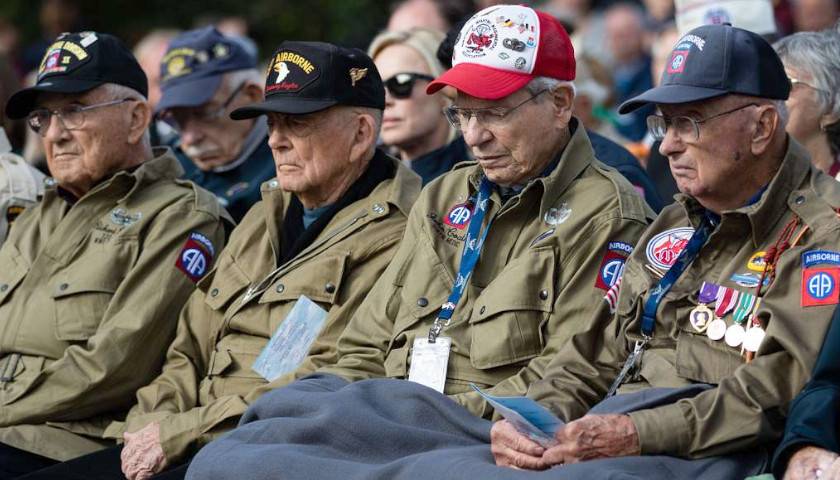by Jim Whaley
Veterans have positively impacted the success of our nation since its inception. Our nation’s service members make up every aspect of our society and represent every ethnic group at some level. Military service is highly regarded by the vast majority of our nation. For many, it provides a chance to grow, transform and serve something greater than themselves. Countless veterans continue their service to their country as leaders in business, government, and their communities. Their inherent leadership skills coupled with a time-honored ethos make them first-round draft choices for any organization.
Although many veterans find the path to the next chapter of their life a rewarding and exciting time, too many struggle, often because civilian and government organizations have little to no real understanding of military service’s attributes. Some of our nation’s most successful businesses have active recruitment of veterans and veteran resource groups in their companies. This isn’t sentimental – they have benefitted from that investment. Many more could benefit from a more in-depth understanding of what veterans truly offer.
Service members transitioning out of the military experience dramatic changes to fundamental areas of life. Their communities, schedules, jobs, and missions all disappear almost overnight. In a recent study published in the Journal of Behavioral Health Services & Research, more than 60% of veterans reported difficulty adjusting to civilian life. The financial adjustment after the change in income, loss of housing and responsibility of managing uncertain personal finances brings instability and anxiety. Instead of being sent off with the necessary job placement support, soft skills training, and mental health resources to ensure a smooth transition into the workforce, many veterans find themselves struggling to find a civilian career that leverages their strengths and supports their long-term growth.
Military members are trained in a variety of skills, creating a Swiss army knife employee able to thrive under pressure and in evolving environments. However, most civilian employers prefer direct experience in narrow skillsets. Service members struggle to translate their value into civilian terms. Providing veterans with the proper support systems during a tumultuous time is central to ensuring a smooth transition for our veterans.
The DoD should collaborate with veterans and businesses to create unique talent pipelines with the private sector that identify and work with each veteran’s strengths. Veterans have a wide variety of skills and experiences to offer, making them well-suited for civilian jobs, especially in fields such as infrastructure and manufacturing. The DoD can highlight these transferable skills by building relationships with the private sector and creating transition tracks tailored to each veteran’s skill set.
According to estimates from McKinsey Consulting, capitalizing on the transferable skills of veterans in the civilian sector can provide as much as $15 billion in economic opportunities over the next ten years. While existing programs such as Skillbridge provide important connections between service members and industry partners, limited access handicaps their impact. All too often, the skills and earning power of thousands of veterans remain untapped. The DoD can – and must – change that by helping veterans and employers understand and capitalize on the value of veteran employees.
Change requires more than just government action, however; active duty members approaching retirement and veterans must be proactive and intentional about taking advantage of the resources available to them. Completing the Veteran Affairs’ Transition Assistance Program (TAP) is correlated to higher application rates for VA benefits and an increased likelihood of employment after retirement. Yet TAP attendance rates are far from perfect, and 70% of service members don’t start TAP within the required time. Failing to take full advantage of these offerings can handicap veterans as they transition into the civilian workforce.
Additionally, there are many other public and private programs available to veterans that specialize in areas such as legal support, housing, or health care. Finding and working with these organizations can significantly improve a veteran’s transition experience. Success requires support, but it also requires initiative. The TAP is a cookie-cutter approach and does not adapt to the individual or their particular skills, so it has limitations.
As a government, as private sector organizations, as individuals, we have a duty to each of our service members. Providing the support to ensure a successful transition for veterans affects our economy, our recruitment, and our national security. Even more fundamentally, however, it says something about our nation and our willingness to protect those who protected us. “Thank you for your service,” are nice words. The next step to show real gratitude is to support the veteran organization of your choice and help provide veterans a pathway to a career that will help them continue their service. Service members make incredible sacrifices to serve our country – sacrifices that don’t end when their time in the military does. Our duty to them doesn’t end either.
– – –
Jim Whaley is the CEO of Mission Roll Call. He is the former director of communications at the U.S. Military Academy at West Point. As a 20-year veteran of the Army, his awards and decorations include the Master Army Aviator Badge, Legion of Merit, Air Assault Badge and Humanitarian Service Medal.



